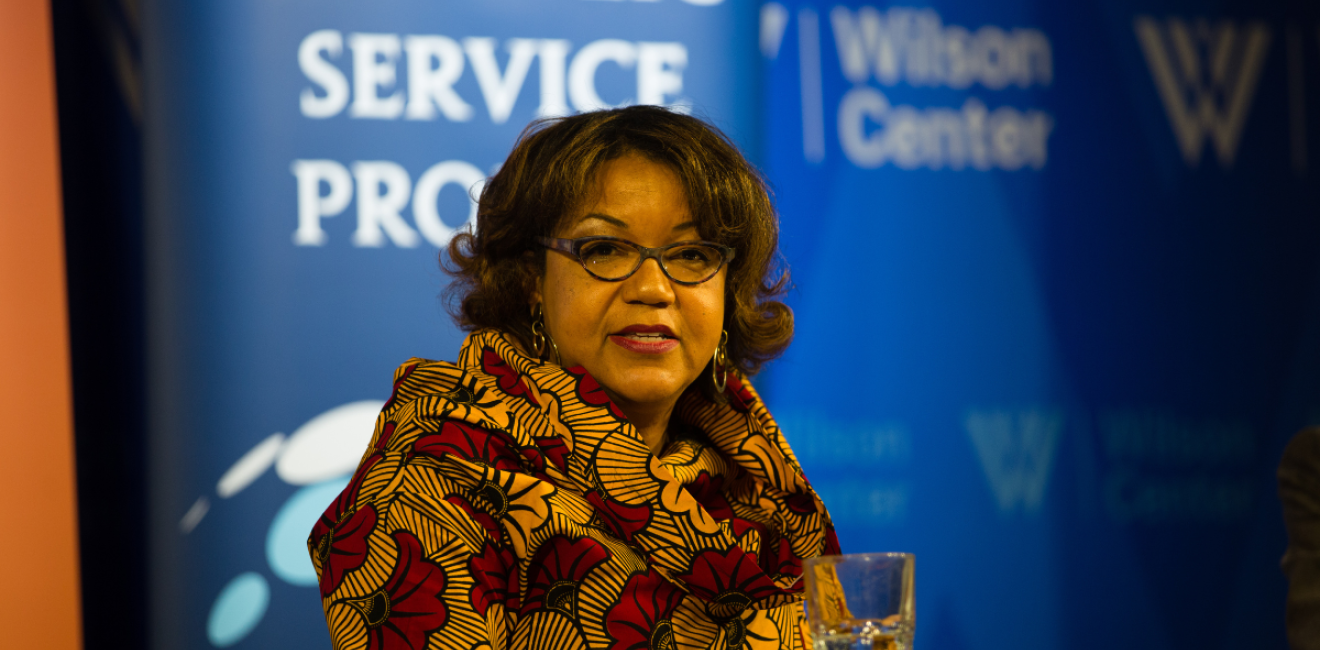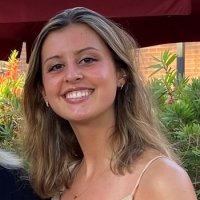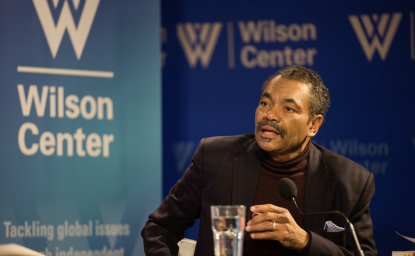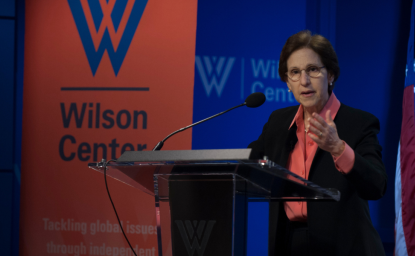
A blog of the Wilson Center

Helene Cooper’s journey through the world of journalism is intertwined with her identity, her family's history, and her understanding of what it means to navigate multiple worlds. A Pulitzer Prize-winning journalist and the author of The House at Sugar Beach and Madam President, Cooper’s path into journalism was not one of simple career choice: it was a personal calling shaped by her upbringing in Liberia, her forced migration to the United States, and the search for truth that both writing and investigation can uncover.
Her childhood in Liberia was formative, though far from conventional. Born into a world of immense beauty and cultural richness, her early years were also marked by political instability. The abrupt arrival of a military coup, a moment of chaos in her home country, fractured her sense of safety. Reflecting on that period, she recalled living her life with "blinders on," not fully aware of the political currents and societal divisions beneath the surface. The coup forced her to confront the reality of her society in a way she had not before, and it left a lasting impression on her view of the world.
"I had not internalized what was going on around me," said Cooper. "The coup was a strong awakening."
However, it was also a spark. Cooper’s early exposure to journalism came at a pivotal moment while she was in high school in the United States. She was introduced to All the President’s Men, the book that chronicled the investigative work of Bob Woodward and Carl Bernstein during the Watergate scandal. For Cooper, this was more than just a story about political intrigue, it was a revelation that journalism could be a tool for uncovering hidden truths, and for seeing the world clearly and with purpose.
"All the President's Men ignited a fire in me," she said. "It made me realize that journalism was a way to gain a deeper understanding of the world around me."
That realization set her on a course to become a journalist, which also became a way for Cooper to explore her own roots, her heritage, and the histories of the places she called home. Through her writing, she would not only seek to understand the world around her, but also the legacies that shaped her identity.
Later, in 2013, when Cooper wrote Madam President, her biography of Liberia’s first female president, Ellen Johnson Sirleaf, she returned to the Wilson Center, where the community of scholars and researchers became a kind of intellectual refuge.
Cooper’s work at the Wilson Center is a key example of this. In 2004, while researching her memoir The House at Sugar Beach, she uncovered a long-forgotten treasure: the journal of her great-great-great-great-grandfather, a freed African American who had sailed to Liberia in the 19th century. The discovery, buried in the Christopher Burger Papers in New York, was a very personal moment for her, bringing her closer to a history that was both distant and immediate.
"I had heard about him my whole life," she said. "My mom always talked about him. But seeing his own writing was something else. It made him real for me in a way I hadn’t expected."
The Wilson Center’s archives and the opportunity to work with an assistant (a first for Cooper), allowed her to explore historical connections and dig deep into Liberia’s colonial past, specifically the American Colonization Society’s efforts to resettle freed slaves in West Africa. Through it, she was able to tie her own family’s journey to the larger story of Liberia’s creation.
Later, in 2013, when Cooper wrote Madam President, her biography of Liberia’s first female president, Ellen Johnson Sirleaf, she returned to the Wilson Center, where the community of scholars and researchers became a kind of intellectual refuge. There, between writing and research, she would step into the lunchroom and find herself surrounded by conversations from all corners of the world. "It was a great outlet," she said. "I could be buried in my computer, writing about my own country’s history, and then walk into a lunchroom where people were talking about the most interesting things. It was refreshing." In many ways, Cooper’s life has been a search for connection; both to her homeland of Liberia and to the United States, where she now lives. She described her relationship with home as being a balancing act between two places, each carrying its own significance. Liberia remains home in the deepest, most emotional sense: the food, the language, the culture. But America, where she has built her career, is also home, and she is clear in her sense that she belongs to both worlds.
"When I’m outside of the US and someone asks where I’m from, I’ll say both Liberia and America," she explained. "I belong to both."
When asked about the legacy she hopes to leave, she paused, noting that the idea of legacy had never quite resonated with her. "I don’t think of myself as leaving a legacy," she said. "But I hope that my work encourages people to not be afraid to tell their own stories. We all come from complex histories. And those stories, when we confront them, are what connect us to each other."
This blog post was researched and drafted by Marzia Zunino.
Author

Explore More in Scholar & Alumni Spotlight
Browse Scholar & Alumni Spotlight
Olufemi Vaughan: Shaping Governance Through Scholarship and Dialogue

Dr. Maurice Jackson: The Sounds of Resistance Throughout History

